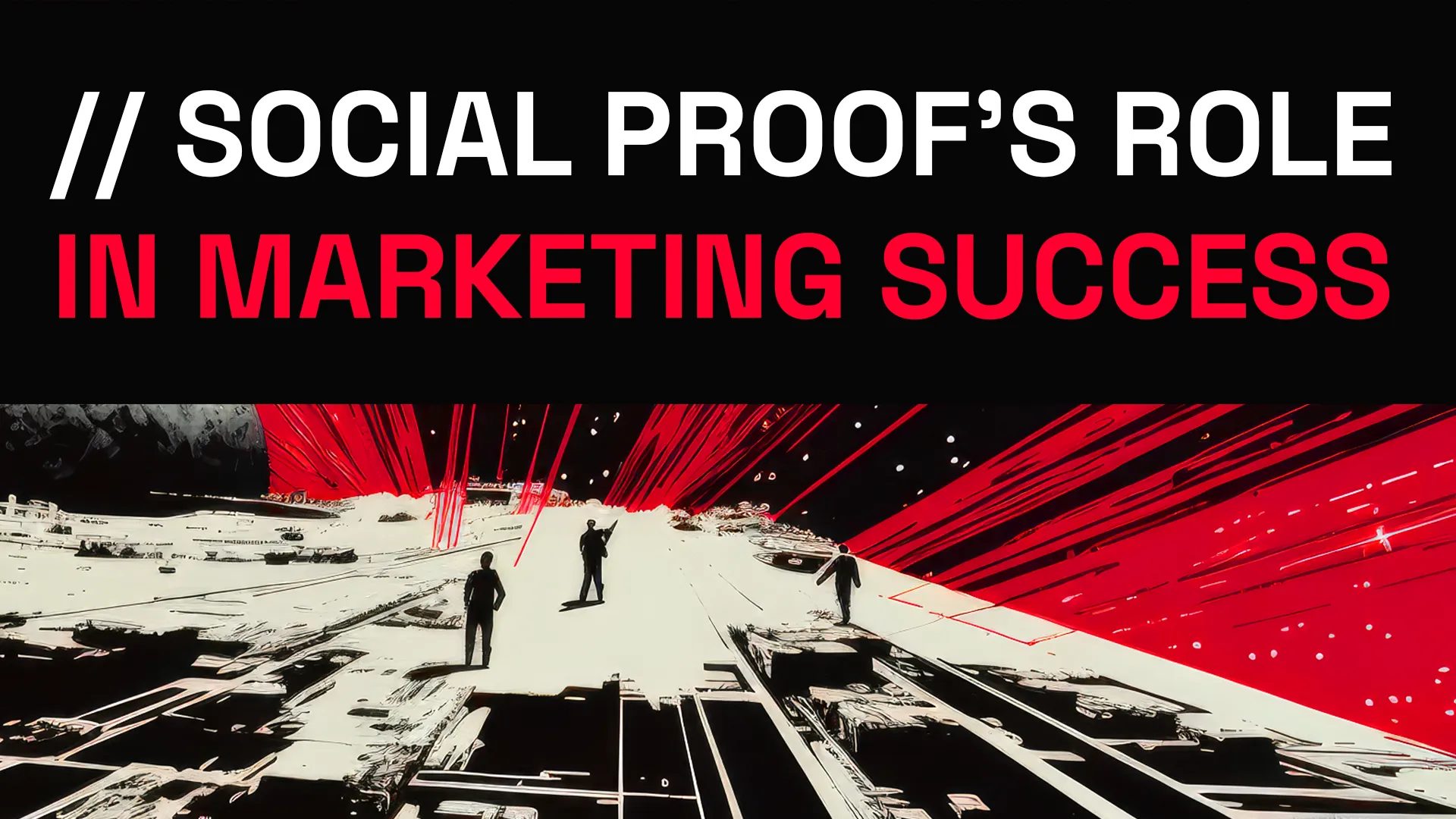TAKE YOUR BUSINESS TO THE NEXT LEVEL
Let us take marketing off your plate. Visit our pricing to learn more about working with Next Level.

Social proof refers to the psychological phenomenon where people look to the behavior and actions of others to help guide their own behavior and decisions.
The quoted insights in this article are from from Robert Cialdini’s acclaimed 1984 book “Influence: The Psychology of Persuasion”. Analyzing the mental shortcuts that shape human behavior, Influence dives deep on the power of social proof and other core drivers behind our decision making, interactions, and vulnerability to ethical influence.
As noted in Influence, “The principle of social proof states that one means we use to determine what is correct is to find out what other people think is correct… We view a behavior as more correct in a given situation to the degree that we see others performing it.” Essentially, if other people are doing something, we tend to view that behavior as appropriate and are more likely to do the same.
Social proof has a powerful influence in our everyday decision making. From choosing a restaurant to making a major purchase, we often look to ratings, reviews, and what others are buying or doing to help validate our own choices.
Surveys show that 98% of consumers read online reviews for local businesses, and 46% trust them as much as personal recommendations (BrightLocal, 2023). This highlights how social proof shapes consumer decisions, particularly in choosing local businesses.
Marketers regularly leverage social proof in their advertising and messaging.
Customer testimonials are a prime example, to quote :
“The transparency of the rigged social proof we get these days… these testimonials from ‘average people like you and me’ make for quite effective advertising campaigns.” — Indeed, 72% of consumers say positive testimonials increase their trust in a business (BigCommerce, 2021).
Similarly, a study by Harvard Business School found that a one-star increase on Yelp can lead to a 5-9% increase in revenue for small businesses, demonstrating the power of perceived popularity (Luca, 2016).
By showing potential customers that other people use and like their product or service, brands tap into social proof to increase conversions.
Some brands even manufacture artificial social proof, like when “certain discotheque owners manufactured a brand of visible social proof for their clubs’ quality by creating long waiting lines outside when there was plenty of room inside.” While questionable ethically, these tactics demonstrate the influential power of social proof in marketing.
While manufacturing social proof can work in the short term, the most powerful and sustainable social proof comes from genuine, authentic endorsements and earned media.
As highlighted in Influence, “The principle of social proof like all other weapons of influence works better under some conditions than under others… We are more inclined to follow the lead of a similar individual than a dissimilar one.”
Real customer stories, user-generated content, and authentic community engagement are always more believable than stock photos or paid promotions. This is supported by a study indicating that consumers are 2.4 times more likely to view user-generated content as authentic compared to content created by brands (Stackla, 2019).
Maintaining transparency is also key, as “the transparency of the rigged social proof… we get an understandably biased picture of the amount of social support for it.” Being open about paid partnerships and sponsorships helps avoid deceiving customers.
For small businesses, there are many strategic and ethical tactics to leverage social proof. Social media lends itself very well, whether sharing customer posts, leveraging user-generated content in advertising, or highlighting positive reviews.
Locally-focused partnerships, sponsorships and community events also tap into social dynamics. Business owners should closely monitor the impacts of social proof efforts and adjust strategies accordingly.
Relying too heavily on manufactured social proof can backfire if not balanced with authenticity.
In summary, social proof is a powerful psychological influence that shapes both consumer behavior and marketing tactics.
Small, local businesses can strategically harness genuine social proof from their community for an edge over larger competitors.
However, business owners must maintain ethical standards and transparency when leveraging testimonials or endorsements for marketing purposes.
As noted in Influence, “An automatic-pilot device like social proof should never be trusted fully.” Monitoring impact and focusing on authenticity will lead to the best results.
Let us take marketing off your plate. Visit our pricing to learn more about working with Next Level.